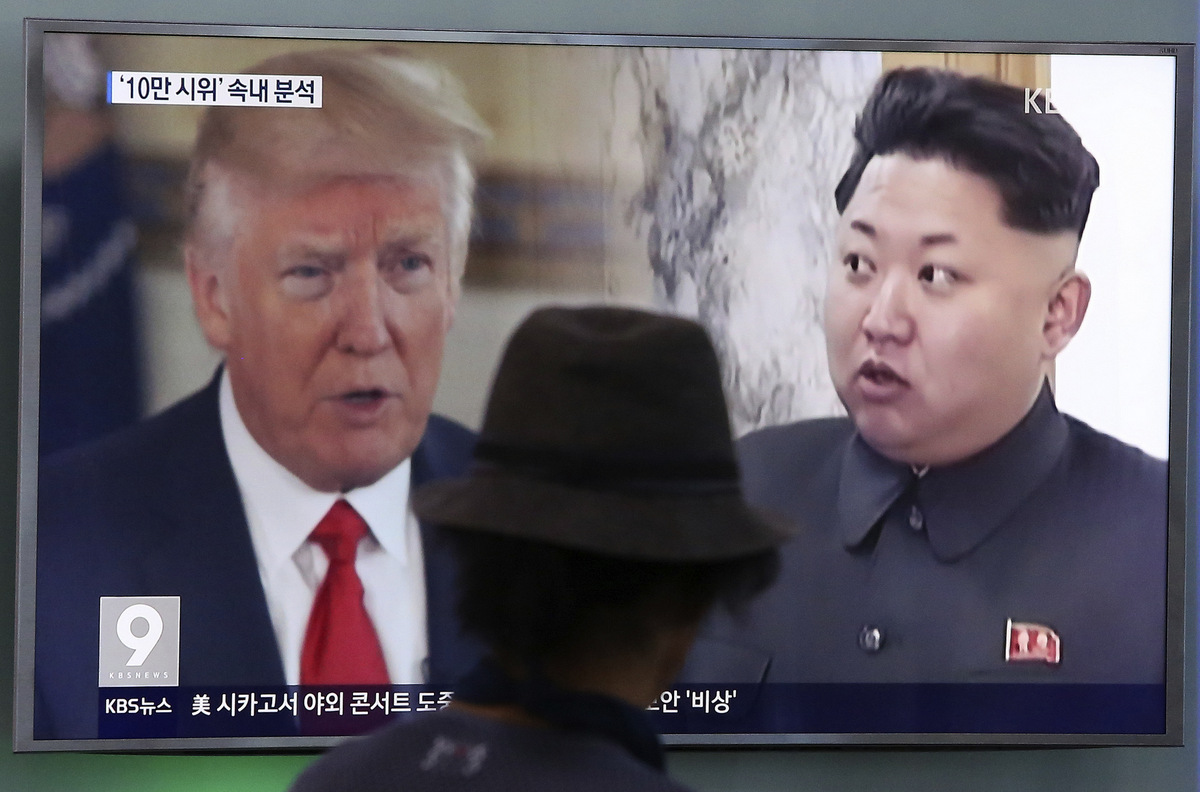In a stunning turnaround from a year of playground insults and threats of nuclear annihilation, President Donald Trump agreed Thursday to meet with North Korean leader Kim Jong-un by May.
South Korean official Chung Eui-yong said in an announcement on the White House driveway that Kim “pledged that North Korea will refrain from any further nuclear missile tests” the run-up to the meeting.
Trump “will accept the invitation to meet with Kim Jong Un at a place and time to be determined,” said White House press secretary Sarah Huckabee Sanders. “We look forward to the denuclearization of North Korea. In the meantime, all sanctions and maximum pressure must remain.”
If the meeting goes as planned, it will be the first time a sitting American president has met with a North Korean leader. In many ways, this could be a welcome improvement from years of slow-boiling tension that culminated in North Korea’s demonstration last year that it could likely reach any of the United States with an intercontinental ballistic missile.
Related
- UN Attempt to Link North Korea to Syrian Chemical Weapons Program Nothing New
- Yes, the United States Used Biological Weapons on North Korea
- Watch | Deciphering Propaganda vs. Reality: War With North Korea
- Scream Loudly and Carry a Nuclear Arsenal: The Dangers of Trump’s “Nuclear Diplomacy”
On the other hand, many fear the move will give legitimacy to the regime that not only succeeded in getting the world’s attention by amassing a frightening nuclear arsenal but continues to subject its people to totalitarian control
Former Ambassador to South Korea Chris Hill noted on NPR, “The North Koreans have invited the president of the United States before, but none of them has come close to accepting.”
“Kim is not inviting Trump so that he can surrender North Korea’s weapons,” said Jeffrey Lewis, an arms control expert at the Middlebury Institute of International Studies. “Kim is inviting Trump to demonstrate that his investment in nuclear and missile capabilities has forced the United States to treat him as an equal.”
Nevertheless, one of the most frightening elements about having two nuclear-armed countries at odds is the failure to communicate.
Thus far, the United States and North Korea have had minimal diplomatic means to assess the other’s strategies and intentions, which increases the chance that we could stumble into a nuclear conflict. While the present situation is far from ideal, opening up more lines of communication is in all likelihood preferable to the alternative.
Top Photo | A man watches a television screen showing President Donald Trump and North Korean leader Kim Jong Un during a news program at the Seoul Train Station in Seoul, South Korea, Aug. 10, 2017. (AP/Ahn Young-joon)
Cody Fenwick is a reporter and editor.
This article was made possible by the readers and supporters of AlterNet, where it first appeared.


